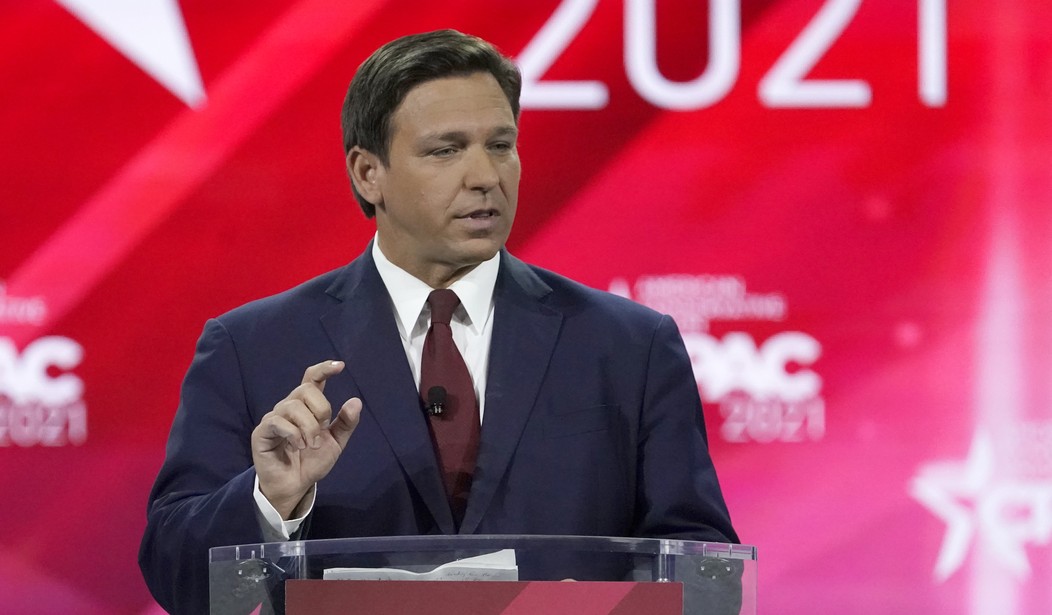Florida is poised to become the first state to take action against Big Tech companies that engage in biased censorship. Republican Gov. Ron DeSantis is reportedly set to sign a bill that would punish social media companies who de-platform politicians.
The New York Post reported:
The bill, passed by the GOP-dominated state Legislature Thursday and awaiting Gov. Ron DeSantis’ signature, would make it a crime to remove state political candidates from Twitter and Facebook, and would mete out penalties of $250,000 a day for any statewide candidate who is deplatformed.
Removing more local candidates would cost the company $25,000 a day.
The bill would also require tech companies to provide users with seven days’ notice that they are subject to being banned and allow them to remedy the issue. It would still allow them to suspend users for up to 14 days.
Republican state Rep. John Snyder told NBC News last Wednesday that this bill is about “sending a loud message to Silicon Valley that they are not the absolute arbiters of truth.” He added:
“What this bill does is send a loud message that the Constitution does not have an asterisk that says only certain speech is free and protected.”
Of course, the bill is not without its critics, mainly from hard leftists who have developed a sudden appreciation for the First Amendment. Author Anthony L. Fisher excoriated DeSantis in a piece for Business Insider:
“But contrary to his contrived pose as a free speech defender, the governor and his party are in reality expanding governmental authority over political speech, free association, and the free market.”
He added:
“To put it another way, the possible heir to Trump’s MAGA throne is using big government censorship on liberals and heavy regulation on businesses to supposedly ‘protect’ conservatives’ freedoms.”
Despite protestations from those who favor censorship, the bill would not compel Big Tech companies to allow users to post content that violates their terms and conditions. It would prevent them from brazenly silencing people based on political affiliation. As NBC News noted:
Facebook and other social media services have long, often elaborate rulebooks for governing what’s allowed on their platforms, which the companies regulate as private forums. But as more political speech has moved online, enforcing those rules consistently and without major pushback has become a constant challenge.
Social media platforms like Twitter, Facebook, and YouTube have repeatedly come under fire for censoring conservative voices online. The censorship debate became even more incensed after Twitter, and other companies banned former President Donald Trump under the guise of being concerned about incitements to violence after the events of Jan. 6 at the U.S. Capitol building. These organizations also used the incident as an opportunity to conduct a mass purge of right-leaning users and to attempt to destroy Parler, an alternative social media site.
The main points of contention are the biased banning of conservative users and the fact that these companies rarely provide a suspended user with the reason behind their suspensions. This means that users are unable to correct the issue to avoid being banned.
While many on the right might be hesitant about supporting government action against Big Tech, others have pointed out that these companies have garnered a troubling level of power over American society. When a small group of people can control what millions of Americans see and hear, it is difficult to avoid state intervention.
In essence, these companies have amassed influence that puts them on par with the Fourth Estate and the government in their ability to sway public opinion. It has become apparent that the individuals who lead these organizations are not interested in using their power responsibly.
This new legislation will almost certainly be challenged in the courts. But if it is upheld, it won’t be long before other states follow suit. While this trend might not yet bring about federal intervention, if enough states begin levying severe fines against social media platforms that engage in biased censorship, it could finally push these companies to correct their practices. However, the question is: Will this be enough?













Join the conversation as a VIP Member